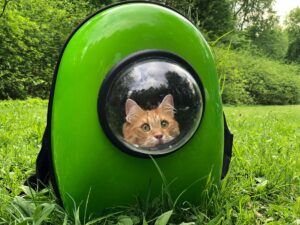The Animal Blog
Memory Care Apartment Guide 2025: Living Options for Cognitive Wellness
Introduction to Memory Care Apartments
In recent years, the demand for memory care apartments has grown significantly as the population ages and awareness of cognitive health issues increases. These specialized living environments are designed to support individuals with memory challenges, such as Alzheimer’s and other forms of dementia. The importance of finding the right living environment cannot be overstated, as it plays a crucial role in the well-being and quality of life for residents and their families. Memory care apartments offer a unique combination of safety, comfort, and specialized care, making them an essential consideration for families seeking supportive living arrangements for their loved ones.
Essential Features of Memory Care Apartments
Memory care apartments are thoughtfully designed to cater to the specific needs of residents with cognitive impairments. These features often include:
- Secure environments to prevent wandering and ensure safety.
- Easy-to-navigate layouts that reduce confusion and stress.
- Specialized lighting to minimize shadows and improve visibility.
- Comfortable and familiar decor to evoke a sense of home.
In addition to these physical attributes, memory care apartments often provide access to therapeutic activities and programs tailored to enhance cognitive function and promote social engagement. These programs can include art therapy, music sessions, and memory games, all designed to stimulate the mind and encourage interaction among residents. By offering a holistic approach to care, memory care apartments strive to create a nurturing environment that supports both mental and physical health.
Safety Considerations in Memory Care Apartments
Safety is a paramount concern in memory care apartments, as residents may have difficulty with memory and judgment. To address this, these apartments are equipped with various safety features, such as:
- 24/7 monitoring by trained staff to provide immediate assistance when needed.
- Emergency call systems to ensure quick responses to any incidents.
- Secured entry and exit points to prevent unauthorized access and wandering.
- Fire safety measures, including smoke detectors and sprinkler systems.
These safety measures are complemented by personalized care plans that are regularly reviewed and updated to meet the changing needs of each resident. By prioritizing safety, memory care apartments provide peace of mind to families, knowing that their loved ones are in a secure and supportive environment.
Choosing the Right Memory Care Apartment
Selecting the appropriate memory care apartment involves careful consideration of various factors, including location, cost, and the level of care provided. Families should visit potential facilities to assess the environment and meet with staff to gauge their expertise and approach to care. Key questions to ask include:
- What is the staff-to-resident ratio, and how is care personalized?
- What activities and programs are available to residents?
- How are medical emergencies handled, and what healthcare services are accessible?
- What are the costs involved, and what is included in the pricing?
By thoroughly evaluating these aspects, families can make informed decisions that align with the needs and preferences of their loved ones, ensuring a smooth transition into memory care living.
Trends and Innovations in Memory Care Apartments
The landscape of memory care is continually evolving, with new trends and innovations shaping the future of these living arrangements. Technological advancements, such as smart home systems and wearable health monitors, are being integrated into memory care apartments to enhance safety and improve quality of care. Additionally, there is a growing emphasis on personalized care plans that cater to the unique needs of each resident, incorporating their interests and preferences into daily routines.
Another significant trend is the focus on creating community-oriented environments that encourage social interaction and engagement. This approach not only enhances the quality of life for residents but also fosters a sense of belonging and community. As we look to the future, memory care apartments are poised to continue evolving, offering innovative solutions that address the diverse needs of individuals with cognitive challenges.









